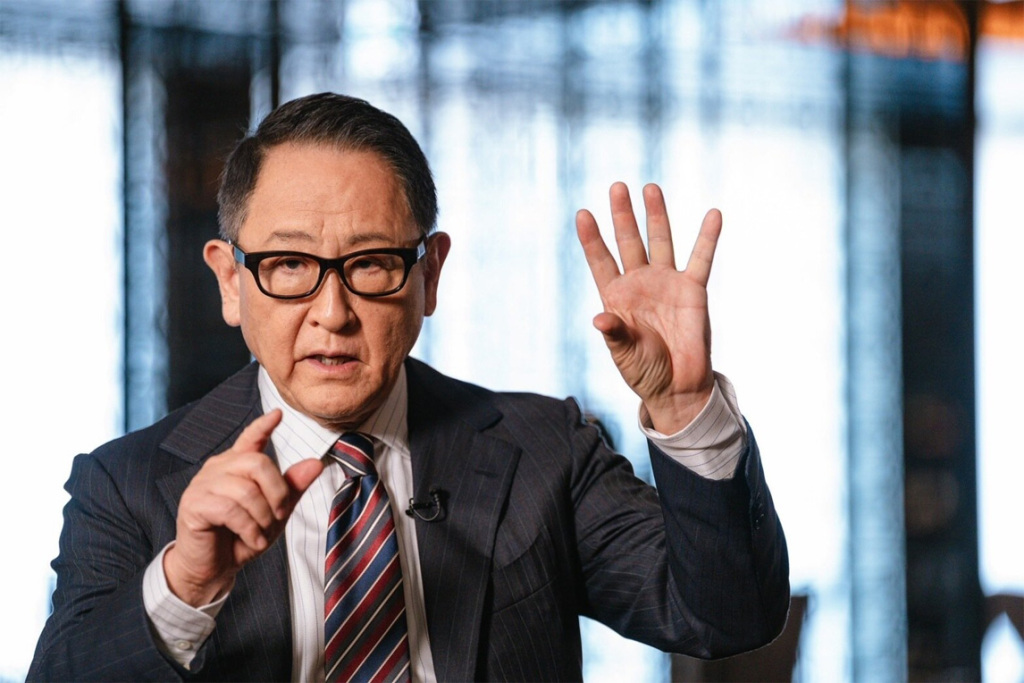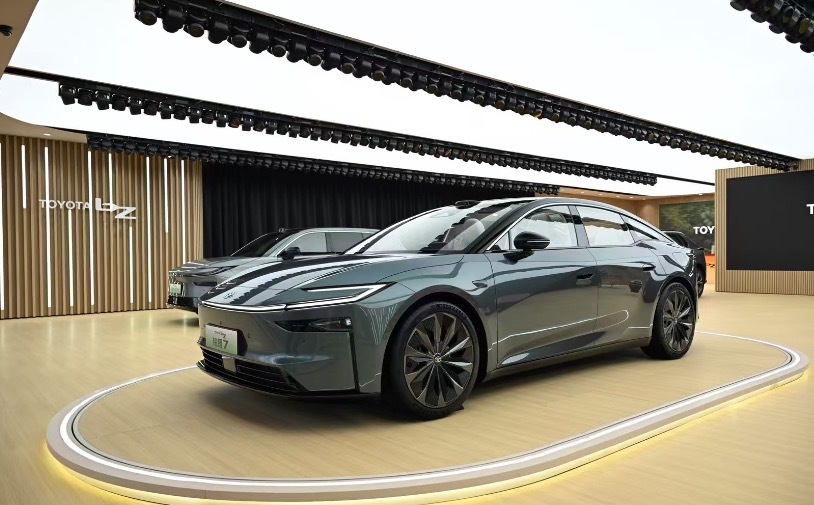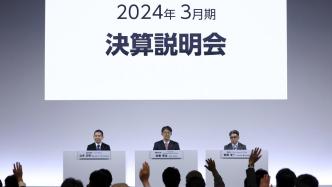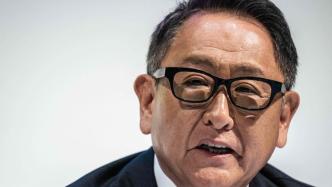
On June 18, 2024, Akio Toyoda was re-appointed as Chairman of Toyota Motor at the Toyota Motor Annual Shareholders Meeting held at its headquarters in Aichi Prefecture, Japan.
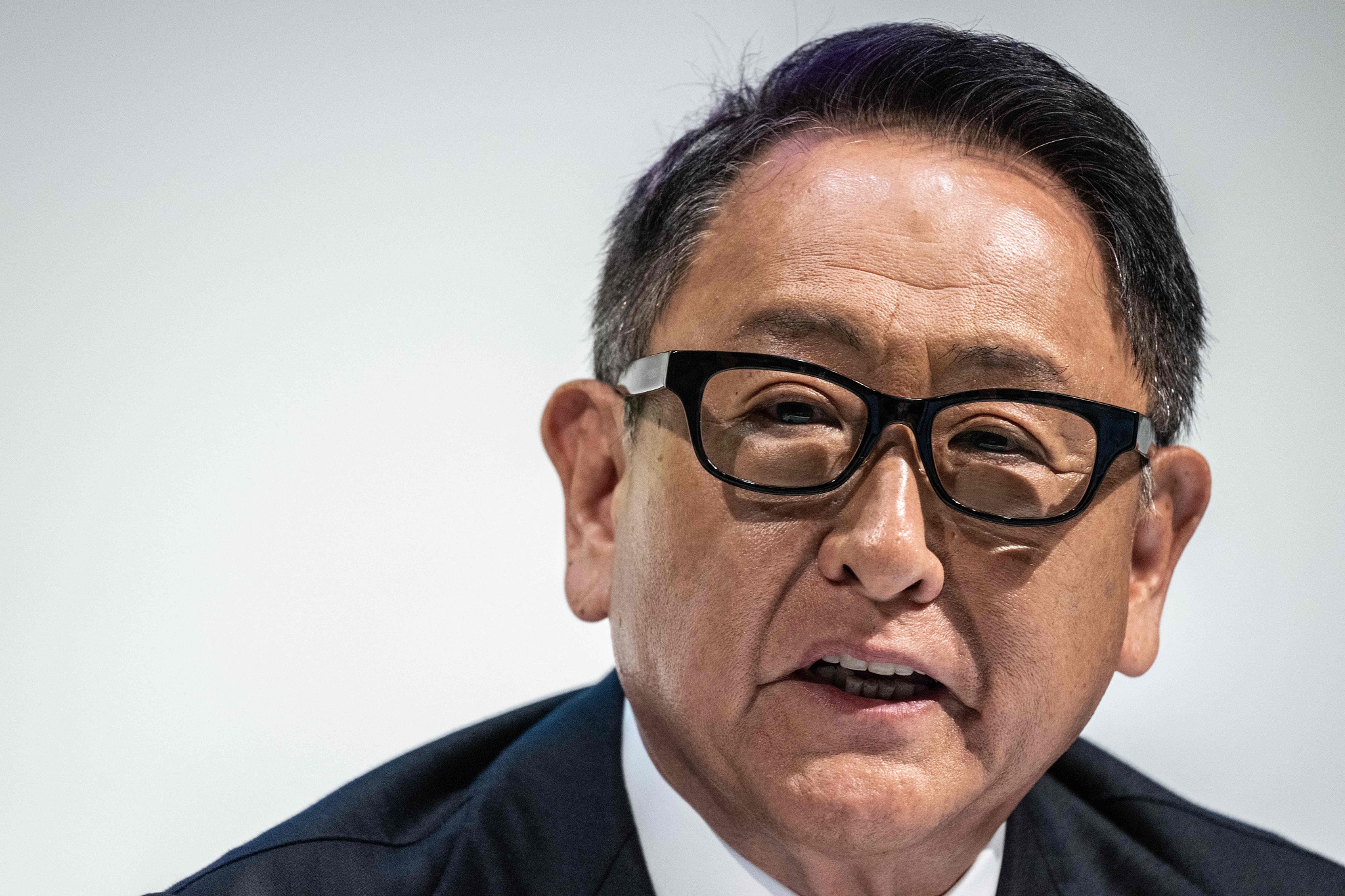
On June 3, 2024 local time, in Tokyo, Japan, Akio Toyoda, Chairman of Toyota Motor Corporation, delivered a speech.
At the same time, nine other board members, including Toyota Motor President Koji Sato and two executive vice presidents Hiroki Nakajima and Yoichi Miyazaki, were also re-elected.
Behind this seemingly calm result, it actually went through a turbulent "struggle."
Days ahead of Toyota's recent series of safety certification scandals, its investment advisers and some shareholders have raised sharp questions and urged a vote against Akio Toyoda's re-election.
At the shareholder meeting, Toyoda defended his continued deep involvement in the company's operations, responding to calls from some big investors for him to step aside.
"Some people have inferred that what I do and how I conduct myself is similar to the gubernatorial system," Toyoda said. He was referring to Japan's imperial form of government, in which the emperor retains power and influence even if he abdicates.
Akio Toyoda, 68, said, "I consult with the younger generation of executives and provide them with my suggestions. If you call this the administrative system, then I am happy to continue as a president (at Toyota Motor) 'Emperor' leader."
During the Q&A session, a shareholder named Goto said he was concerned about the company's internal controls and governance. He asked bluntly: "Is Toyota OK?"
Toyoda replied: "To me, governance is not about controlling everything, nor is it about managing everything. To me, governance means that everyone has a certain degree of independence and autonomy to perform their duties in the group's subsidiaries and factories. responsibilities.”
The last questioner at the meeting criticized Toyota for allowing Akio Toyoda to regard motorsports as a personal hobby.
Akio Toyoda is an avid car enthusiast and even at the age of 68, he still climbs behind the wheel to compete. But Toyoda said he has considered himself ultimately responsible for everything at the company since becoming chairman last year.
Describing his current position as a kind of "shadow cabinet" for Sato and the younger generation of management, Toyoda reiterated: "Governance is not about me trying to control everything. I take responsibility and the executive members make the decisions. I want Communicate with them and give them ideas.”
Toyota has confirmed that a majority of people voted to support Akio Toyoda's re-election, and the exact results of the shareholder vote will be announced on June 19. There is no suspense about his re-election, but this vote will be regarded as an indicator of Toyoda's approval rating.
The results showed that at the shareholders' meeting, although Akio Toyoda was still elected as chairman of Toyota, he was re-elected with the lowest shareholder support rate in history, receiving only 72% of the votes.
In 2023, Toyoda's approval rating had reached the lowest level in history at that time - he won re-election with nearly 85% of the vote. This proportion is even lower than 96% in 2022.
Among Toyota Motor's nearly 1 million shareholders, the largest shareholders are Japanese companies such as banks, insurance companies and financial institutions, with a shareholding ratio of approximately 39%. Other Japanese entities Corporate entities account for 25%, foreign companies account for nearly 22%, and individual shareholders account for about 14%. Group company Toyota Loom is the second largest shareholder. Parts maker Denso Corp. is the sixth-largest shareholder.
It is understood that the U.S. proxy consulting company Institutional Shareholder Services (ISS), the head of the New York City Public Employees Pension Fund Michael Garland, and the U.S. proxy consulting company Glass Lewis all oppose Akio Toyoda's election as Toyota chairman.
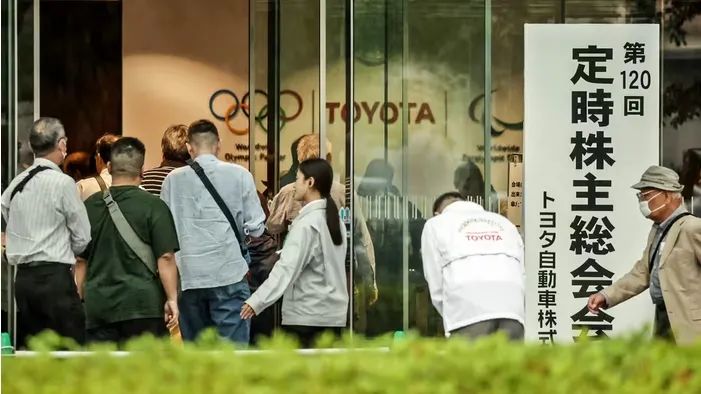
immersed in doubt
In his 14 years at the helm of Toyota, Akio Toyoda has pushed his family's namesake automaker to new heights. Now he is under fire from disaffected activists who are trying to abandon him.
Toyoda's tenure was not perfect. In its early years, Toyota was mired in accidental acceleration scandals. Environmentalists and investors have recently blasted him for stalling on electric vehicles. The company's key software arm, Woven by Toyota, has struggled to gain traction.
Toyoda seems more concerned with keeping his job than delivering breakthrough innovation. Critics often accuse him of suffering from "naked emperor" syndrome and being surrounded by yes-men. He also had a tense relationship with the media.
Now another big boot has dropped in a Test scandal and dissatisfaction is growing.
Earlier this year, two Toyota Motor subsidiaries were reprimanded by regulators over similar certification issues. Toyoda vowed in January to rebuild customer trust and called on the entire group to "get back to basics."
However, on June 3, Japan’s Ministry of Land, Infrastructure, Transport and Tourism suddenly announced that Toyota submitted erroneous data in the pedestrian safety test of three current models (Corolla Fielder, Corolla Axio and Yaris Cross), and submitted incorrect data in the pedestrian safety test of four discontinued models. In the crash safety tests, modified test vehicles were used.
It would be a shock if Toyoda was actually voted out of the board at Japan's carefully orchestrated shareholder meeting.
Tsuneharu Sato apologized again for the certification issue at the shareholders' meeting. "The cars we built and sold did not follow the proper homologation process," he told shareholders. "We are working hard to transform that culture."
Ahead of the shareholder meeting, two prominent proxy groups recommended voting against Toyoda's reappointment.
Akio Toyoda served as the president of Toyota Motor from 2009 to 2023, then handed the steering wheel to Koji Sato and retired as chairman.
But shareholders should think twice before abandoning the man who built Toyota into a Japanese auto giant.
While his tenure has not always been smooth sailing, his relentless focus on better products, sustainable growth, brand image and shareholder value has been a winning formula.
Glass Lewis & Co. and Institutional Shareholder Services (ISS) pointed out that the biggest problem is the recent series of safety and certification scandals suffered by Toyota Group companies.
The internal turmoil caught the attention of investors. People from seven large investor groups told The New York Times that they planned to vote against Toyoda's re-election due to concerns about the board's independence. Some of them were not authorized to speak publicly.
In fact, before the situation escalated on June 3, Glass Lewis and ISS stated that Akio Toyoda, as the symbolic leader of the Toyota Group, should be responsible for these problems and the culture that perpetuates these problems.
ISS said in its opinion letter at the June meeting: "Considering the current series of certification violations at Toyota Motor, it is recommended that shareholders vote against Chairman Akio Toyoda. Fundamentally, corporate culture will be created from the top down, and It’s not bottom-up. If there’s no change at the director level, it seems questionable whether the company’s approach is effective.”
Glass Lewis accused Toyoda's supervisory board of not being independent enough. The advisory group believes that of the newly proposed 10-member board, only three directors are truly independent. "Given the board's lack of independence, we believe shareholders should oppose Toyoda's re-election."
“This is a case of a particularly powerful executive serving as chairman,” said Michael Garland, director of corporate governance for the New York City Comptroller’s Office, which oversees the city’s more than $260 billion. Retirement Fund System. "It's important that Toyota needs more independent board oversight."
"Not having adequate checks and balances is just bad governance, but over-correction can cause a company to completely lose momentum," said Howard Yu, director of the senior management program at IMD Business School. "Toyota is at this critical moment."
Some may vote in protest to express their displeasure with the scion of the founding family. But thoughtful shareholders will resist the temptation to turn "perfect" into the enemy of "good."
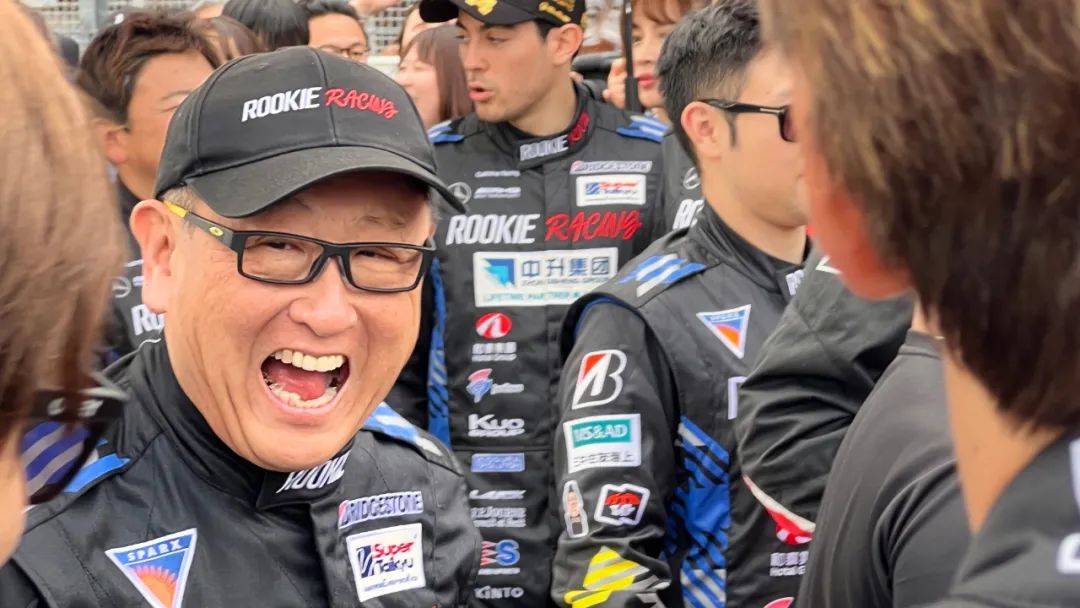
Six reasons to stay
Automotive News listed six reasons why attendees should give Toyoda another green light on his shortcomings. These 6 keywords are enough to illustrate the importance of Akio Toyoda to Toyota Motor.
First, product comes first.
Toyota cars of the past have always had a reputation for being durable and reliable, but they were also dull and boring.
From the first day that Toyoda took office, he set out to change this situation and created miracles. Driven by his "better car" philosophy, Toyota introduced cars that looked better and handled better.
Toyoda has rearranged his product portfolio around successful model lines such as the Crown, Corolla and Yaris range, and also rebalanced the regional sales mix.
In 2008, the company's sales tilted towards North America and Japan. Risks are now spread, with no single region accounting for more than a quarter of global sales.
The designs of these cars are also eye-catching – just look at some of the most recent iconic models, including the latest generation Prius, Land Cruiser or Lexus LC.
Today's Toyotas drive with a swagger to match those looks, because the boss knows his car. As a track-obsessed racer, Toyoda, who still drives under the name Morizo at the age of 68, has a keen sense of the dynamic characteristics of racing.
This will be fed back to each model. Morizo has not relinquished his role as Toyota's chief driving officer, meaning Toyoda will leave his mark on the lineup as long as shareholders so choose.
Second, authority figures.
Take a quick test, how many current CEOs of Japanese car companies can you name? How many faces can you recognize?
Probably not many.
Yet many people, even outside the auto industry, know Akio Toyoda - the dynamic, charismatic auto industry figure who is a rarity among Japan's sea of anonymous black-suited office workers who often He took turns serving as the company's interim CEO for five years.
Colloquially, industry observers affectionately call him Akio. His kinship with the company, his love of cars, his commitment to Japan as the longest-serving president of the Japan Automobile Manufacturers Association — all make him a supreme authority.
Akio Toyoda is not only a third-generation successor to Toyota Motor Corporation, but also the living embodiment of the company, which was founded by his grandfather and later run by his father. Akio Toyoda is also an ambassador for the Japanese automotive industry and the love of driving around the world.
His influence brings intangible but extraordinary value that is difficult to price into the stock price but will undoubtedly benefit the company.
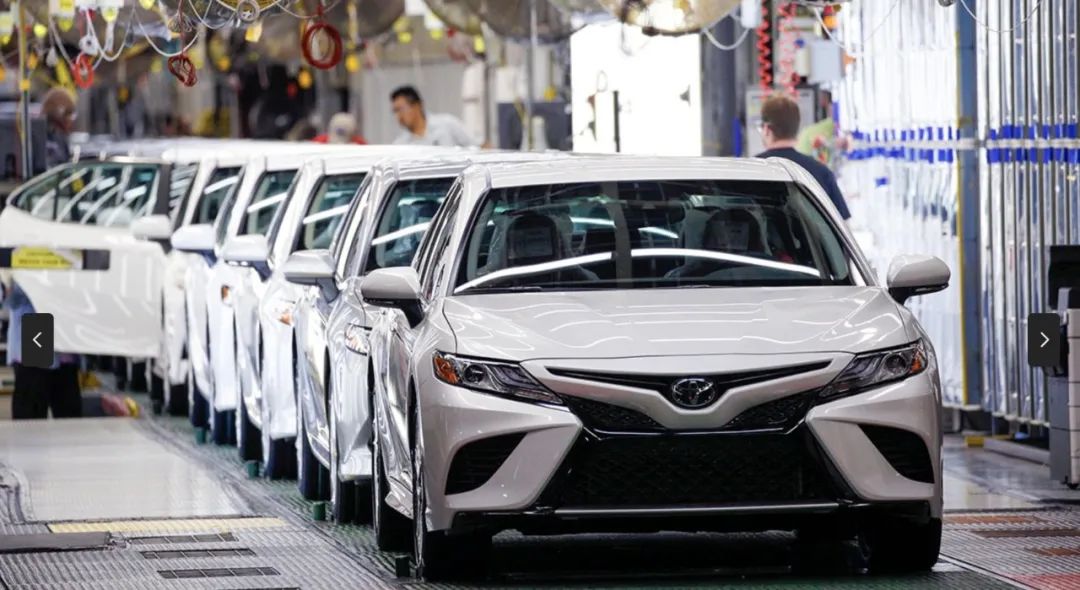
Third, the anchor of culture.
At a recent press conference, Toyoda was asked whether Toyota's vaunted production system was outdated in modern times.
A reporter asked about the system's focus on continued cost-cutting. Toyoda immediately interjected and corrected: This is not about cost cutting, this is about continuous improvement.
On another occasion, Toyoda was asked whether the Toyota Production System could be used to completely eliminate the certification testing problems plaguing the company. He responded that trying to reduce errors to zero was futile and that "the real value of the system is in creating a framework in which problems can be quickly identified and then effectively resolved."
This kind of meticulous control of company culture has actually been developed by Akio Toyoda since he was a child.
Of course, other Toyota executives understand these principles, but when Toyoda himself speaks out, it takes on extra legitimacy and influence. He has been a cultural pillar for past generations and a family flag that the company can rally around.
Critics may say Toyoda dwells too much on the past, but he also brings important continuity.
It's hard to separate Toyoda from the company.
Fourth, growth machine.
The numbers speak for themselves. In the fiscal year before Toyoda took office, Toyota's global sales were 8.33 million vehicles. In its most recent fiscal year, the company sold 11.09 million units. During this period, Toyota expanded its market share in 11 of the world's 15 major markets.
But Toyoda never cared about sales.
In fact, Toyoda has twice deliberately put the brakes on growth. The first was after an unexpected acceleration of the crisis. A second transformation is taking place as companies and suppliers slow down growth and reinvest in quality, human resources, and new technologies.
Toyoda showed courageous leadership by acknowledging the need to take a breather.
He also deserves credit for continuing to support hybrid vehicles in the all-electric era. Hybrids are an important growth engine, powering revenue and profits that are plowed back into next-generation electric vehicles.
Toyota will also use its record profits to raise prices at suppliers, raise wages for workers and provide new support programs for domestic dealers.
Akio Toyoda led this trend. He realized that the global car race is a marathon, not a sprint. Shareholders should embrace this kind of leadership to achieve long-term, sustainable growth.
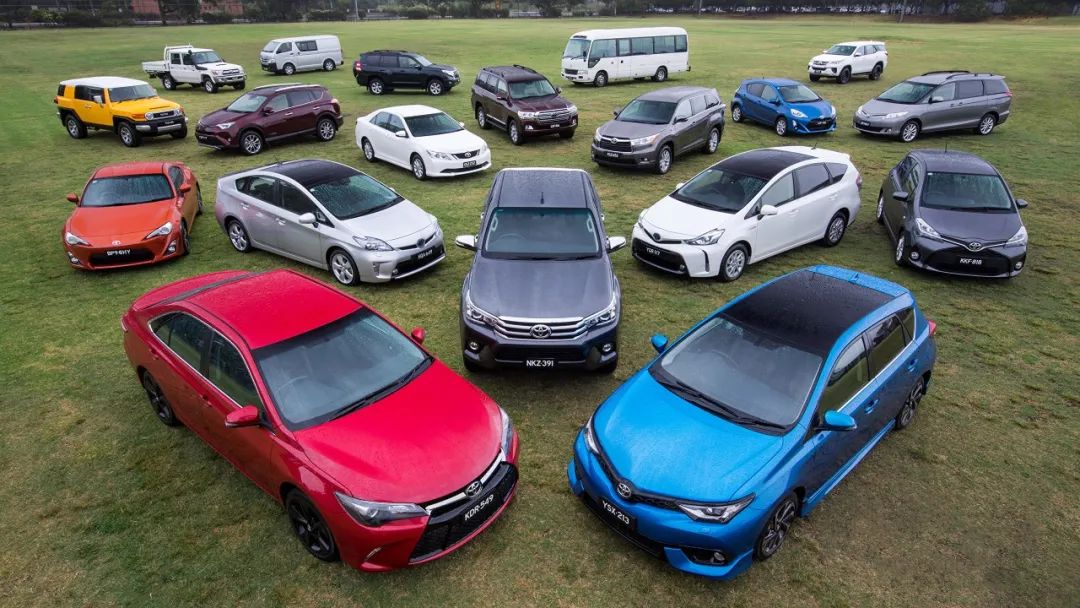
Fifth, the stock price rises.
After the testing scandal broke in June, billions of dollars were wiped off Toyota's market value in the days that followed as investors sold shares.
Indeed, Toyota Motor's shares are down 6.4% since the beginning of the month. But it's still up 19% year to date and 35% over the past 12 months. Since Akio Toyoda took office in June 2009, Toyota Motor's stock price has more than quadrupled.
By comparison, Ford Motor Co and Volkswagen Group have only doubled. GM was bankrupt at the time but has grown only 41% since its rebirth.
When Akio Toyoda, 53, took the helm and became the company's youngest ever president, the automaker had just fallen into its first operating loss in 70 years. The world's largest automaker delivered a blockbuster financial report for the year ended March 31, with record results across the board in terms of profits, sales, revenue and production.
Toyota has achieved this achievement thanks to years of steady improvement in its cost structure. Today, the company said its break-even production levels are 30% lower than in 2009.
In the year of the Great Recession, Toyota's sales fell 15% and the company fell into the red. In the first year of the epidemic in 2019, Toyota's global sales fell even more seriously, falling by 25%.
However, the company's operating profit was little changed - down just 8.4%, and it maintained a super-strong margin of 8.1%.
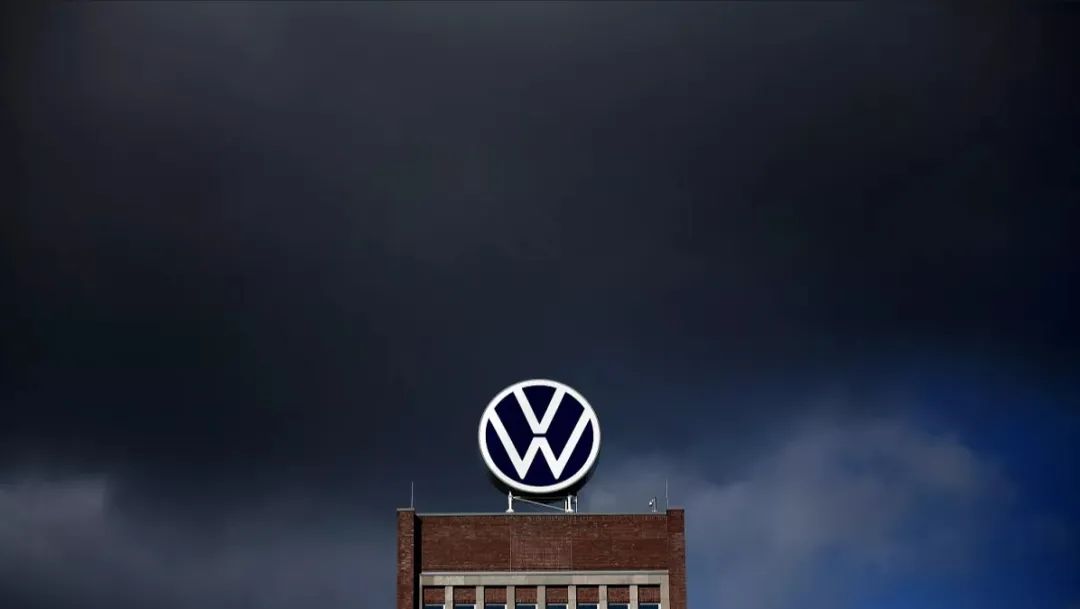
Sixth, it is not equivalent to Volkswagen's "Dieselgate".
Some media outlets have used less than cautious words to describe the recent testing and certification scandals that have engulfed Toyota and other Japanese automakers such as Mazda and Honda.
They call it Japan's "Dieselgate," a term that refers to the diesel emissions cheating scandal that plagued Volkswagen Group and led to the downfall of its leadership.
In fact, Toyota's violations are embarrassing. It does breach regulations and erode public trust. And the crisis is likely to deepen because Toyota has yet to report on its review of emissions and fuel consumption tests. It may also affect overseas markets, pending further investigation.
But there is no evidence that Toyota's misconduct was a deliberate conspiracy to circumvent the rules in a large-scale, systematic manner.
Toyota's review of tens of thousands of tests has so far found only six violations. Among Toyota's vast product lines, only seven models are affected, four of which have been discontinued.
Toyota insists that so far the problems have not warranted a recall because the cars still comply with safety and other legal requirements. In fact, Toyota's testing often exceeds these requirements.
For example, in a rear crash test, Toyota used a 1.8-ton barrier. Japanese regulators require 1.1 tons. When testing the collision of a pedestrian's head with the hood, regulations require a 50-degree angle, but Toyota tested a 65-degree angle, which actually caused more damage.
Perversely, Toyota's "crime" in this case was that it failed to retest to a lower standard.
Toyota argued that its engineers did not cheat the rules to reduce quality or circumvent safety. Instead, they try to achieve better results by going beyond these guidelines.
Yes, they did not follow the rules of the law. But is this a grand conspiracy like the Volkswagen Group?
Toyota shareholders should take a deep breath and not throw away the dregs along with the best.
(The original title is "Amid doubts, Akio Toyoda is re-elected as chairman", the content has been slightly changed)
